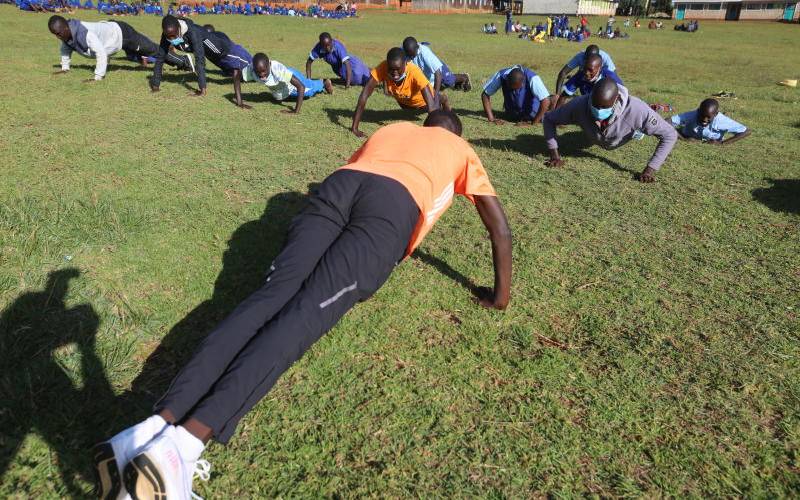×
The Standard e-Paper
Home To Bold Columnists

Upcoming school athlete pupils led by their colleague Braven Kiptoo, engage in physical fitness at Kipchiloi Primary School in Elgeyo Marakwet County.[Peter Ochieng, Standard]
Kennedy Anjejo was diagnosed with kidney failure at the Metropolitan Hospital in Nairobi. The health of the 38-year-old from Mamboleo in Kisumu town has also been deteriorating.